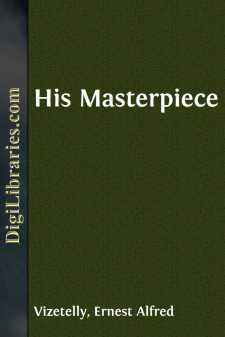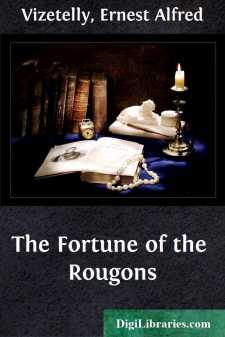Categories
- Antiques & Collectibles 13
- Architecture 36
- Art 48
- Bibles 22
- Biography & Autobiography 813
- Body, Mind & Spirit 142
- Business & Economics 28
- Children's Books 15
- Children's Fiction 12
- Computers 4
- Cooking 94
- Crafts & Hobbies 4
- Drama 346
- Education 46
- Family & Relationships 57
- Fiction 11828
- Games 19
- Gardening 17
- Health & Fitness 34
- History 1377
- House & Home 1
- Humor 147
- Juvenile Fiction 1873
- Juvenile Nonfiction 202
- Language Arts & Disciplines 88
- Law 16
- Literary Collections 686
- Literary Criticism 179
- Mathematics 13
- Medical 41
- Music 40
- Nature 179
- Non-Classifiable 1768
- Performing Arts 7
- Periodicals 1453
- Philosophy 64
- Photography 2
- Poetry 896
- Political Science 203
- Psychology 42
- Reference 154
- Religion 513
- Science 126
- Self-Help 84
- Social Science 81
- Sports & Recreation 34
- Study Aids 3
- Technology & Engineering 59
- Transportation 23
- Travel 463
- True Crime 29
My Days of Adventure The Fall of France, 1870-71
Description:
Excerpt
PREFACE
While this volume is largely of an autobiographical character, it will be found to contain also a variety of general information concerning the Franco-German War of 1870-71, more particularly with respect to the second part of that great struggle—the so-called "People's War" which followed the crash of Sedan and the downfall of the Second French Empire. If I have incorporated this historical matter in my book, it is because I have repeatedly noticed in these later years that, whilst English people are conversant with the main facts of the Sedan disaster and such subsequent outstanding events as the siege of Paris and the capitulation of Metz, they usually know very little about the manner in which the war generally was carried on by the French under the virtual dictatorship of Gambetta. Should England ever be invaded by a large hostile force, we, with our very limited regular army, should probably be obliged to rely largely on elements similar to those which were called to the field by the French National Defence Government of 1870 after the regular armies of the Empire had been either crushed at Sedan or closely invested at Metz. For that reason I have always taken a keen interest in our Territorial Force, well realizing what heavy responsibilities would fall upon it if a powerful enemy should obtain a footing in this country. Some indication of those responsibilities will be found in the present book.
Generally speaking, however, I have given only a sketch of the latter part of the Franco-German War. To have entered into details on an infinity of matters would have necessitated the writing of a very much longer work. However, I have supplied, I think, a good deal of precise information respecting the events which I actually witnessed, and in this connexion, perhaps, I may have thrown some useful sidelights on the war generally; for many things akin to those which I saw, occurred under more or less similar circumstances in other parts of France.
People who are aware that I am acquainted with the shortcomings of the French in those already distant days, and that I have watched, as closely as most foreigners can watch, the evolution of the French army in these later times, have often asked me what, to my thinking, would be the outcome of another Franco-German War. For many years I fully anticipated another struggle between the two Powers, and held myself in readiness to do duty as a war-correspondent. I long thought, also, that the signal for that struggle would be given by France. But I am no longer of that opinion. I fully believe that all French statesmen worthy of the name realize that it would be suicidal for France to provoke a war with her formidable neighbour. And at the same time I candidly confess that I do not know what some journalists mean by what they call the "New France." To my thinking there is no "New France" at all. There was as much spirit, as much patriotism, in the days of MacMahon, in the days of Boulanger, and at other periods, as there is now....











